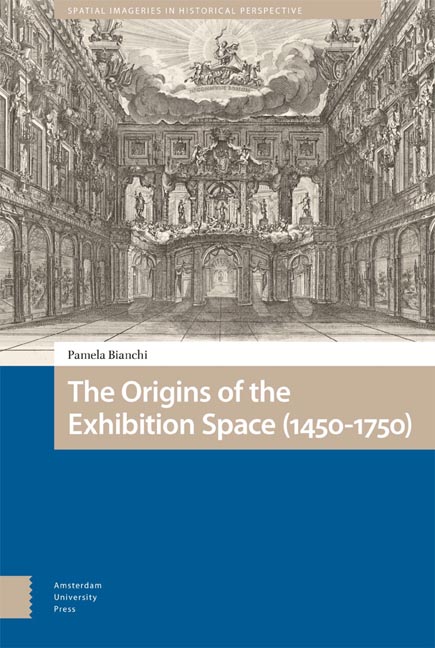2 - Main Topics
Published online by Cambridge University Press: 14 October 2023
Summary
Abstract: This chapter provides an in-depth study of the key concepts that will then be addressed during the research. It first analyses the state of the art and explores the etymological and ontological history of the exhibition space over the years. It continues then with the history of the exhibition, focusing on the distinction between the act of displaying and the action of decorating. It adds the analysis of some earlier case studies (such as the transport of the Majesty of Duccio di Buoninsegna, or Giovanni di Pedrino’s painting The Miracle of the Madonna). The chapter ends with a study dedicated to the ancient treatises and texts dedicated to the practices of organising items within a defined space.
Keywords: ancient treatises, exhibition design, layout, architecture, exhibition
Il recupero del passato assegnato allo storico […] si colloca in un ordine del conoscere meno ‘scientifico’ – nel senso postcartesiano del termine – di quello cui pretende a buon diritto di accedere lo storico strettamente filologo: un ordine in cui il probabile, il verosimile, l’ipotetico, per quanto circoscritti e prudenti intendano essere, rivendicano i propri diritti nell’arte di recuperare non ‘fatti’ ma modalita dimenticate di percezione e comprensione.
The Topoi of the Exhibition Space
Exhibition Space: The term generically refers to any place where one exhibits. It can be any museum space, covered or uncovered, which is given to see; it can be any public place, exterior or interior, in which an exhibition takes place, it can be a room specially dedicated to this function within the museum framework.
Over time, the ontology of the exhibition space has been amply discussed. In the specific area of art and museum histories, two categories of research emerge with particular relevance: one that considers the notion of exhibition space as a means to deepen other reflections, and another for which it is the subject of study in its own right. Especially in the first case, the analysis of the space of art is a preamble that allows the development of the main subject. Several historical or sociocultural studies have used space mostly as a theoretical supplement, a practical parameter, or an architectural unity, sometimes confusing it with its alter ego: the place.
- Type
- Chapter
- Information
- The Origins of the Exhibition Space (1450-1750) , pp. 29 - 56Publisher: Amsterdam University PressPrint publication year: 2023

